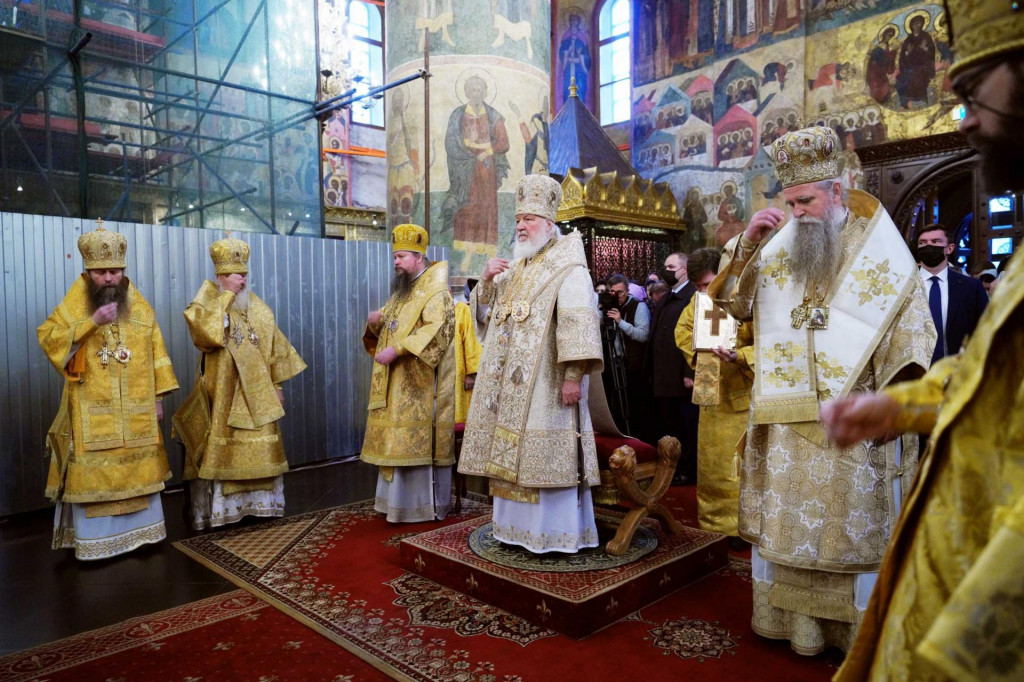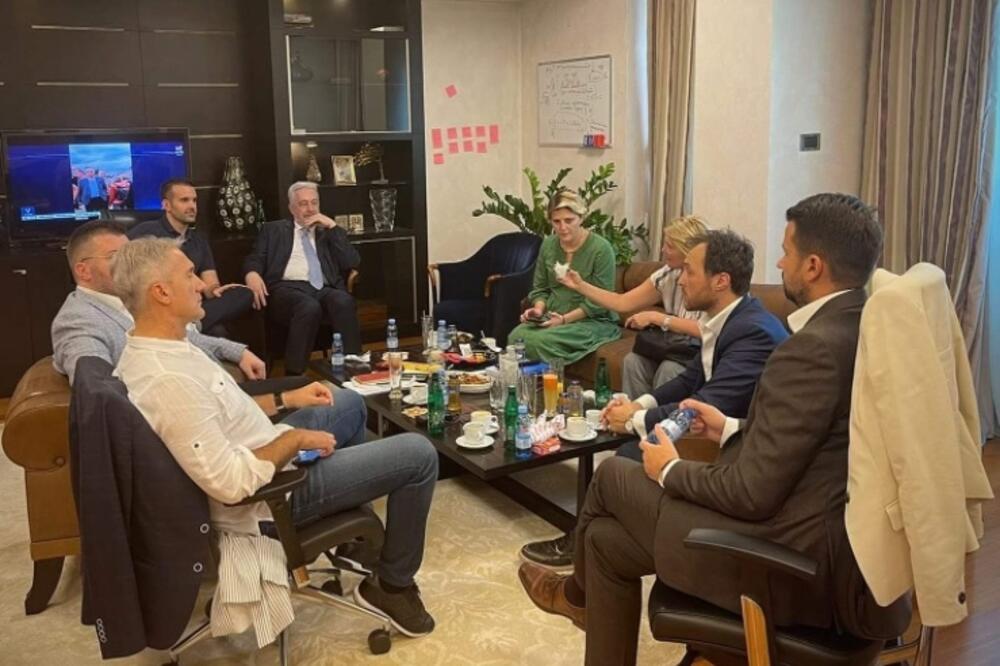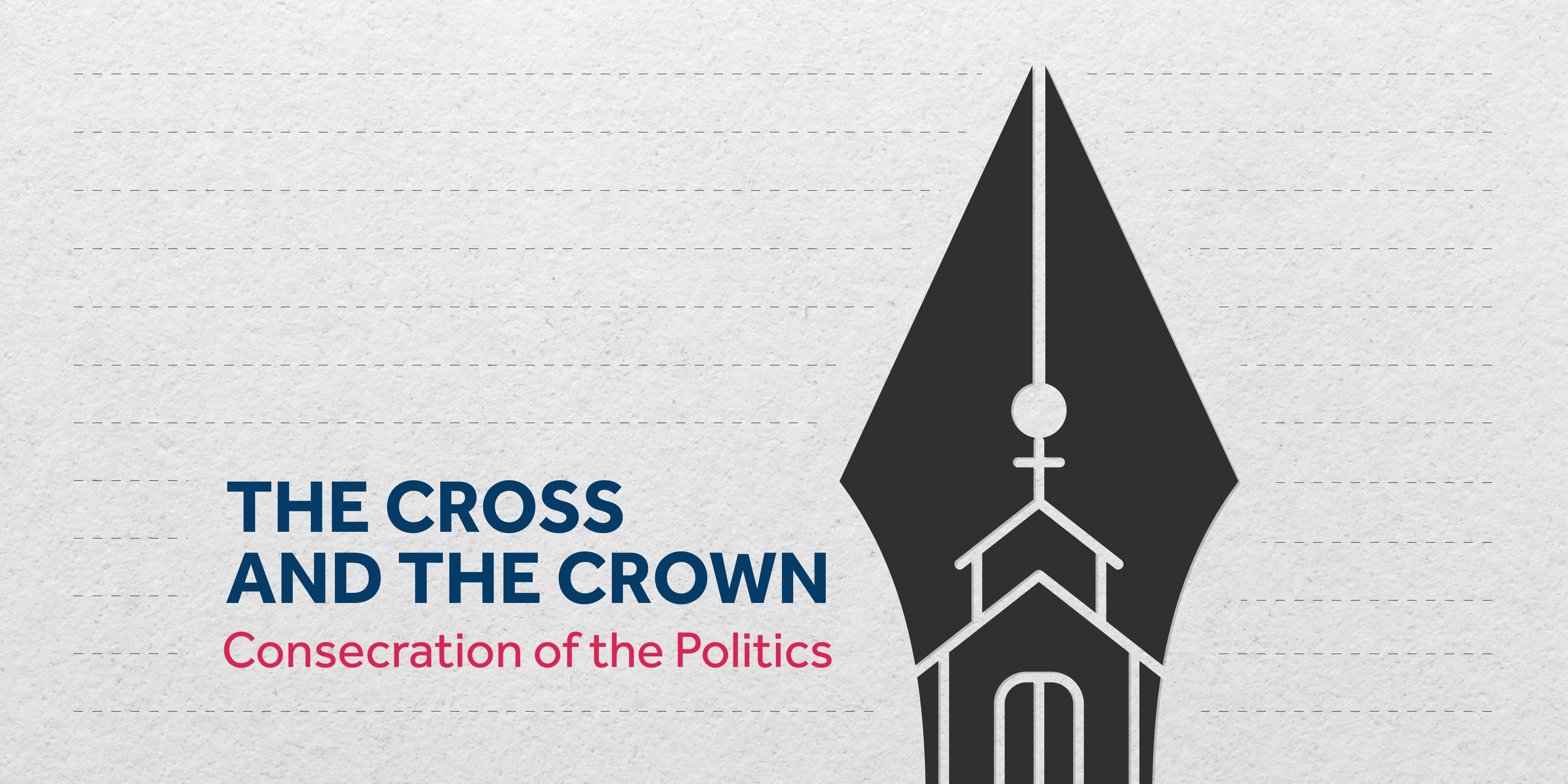The activity of the Serbian Orthodox Church in Montenegro represents a complex interaction between religious and political interests, which has significant and decisive implications on political processes, but also on Montenegrin society as a whole. This activity can be seen through a series of controversies and disagreements with the state, with the most direct activity being the launching of religious processions in 2020. Despite the different intensity and directions of (tacit) cooperation after the referendum, with the often passive attitude of state institutions, the decades-long activity of the SOC in Montenegro was also marked by systematic violation of legal regulations and devastation of Montenegrin cultural and sacred heritage. The Montenegrin state authorities, as a rule, and regardless of the structure of government, did not have an adequate response to these phenomena.
A trace of a more serious crisis in the relations between Metropolitan Amfilohije and the then ruling structures, primarily from the Democratic Party of Socialists, can be linked to the recognition of Kosovo in 2008, but also to the stronger manifestation of the Euro-Atlantic aspirations of the state leadership. In the period after 2015, a more agile and more frequent political activity of church dignitaries was noticeable, according to a recipe that heavily resembles the plan of the synergy of Russian-Serbian action in Montenegro, which was presented in 2015 in Belgrade by the current rector of the University of Montenegro Vladimir Božović He emphasized back then the importance of returning Montenegro to Serbian, pro-Russian and pan-Slovenian essence.
The public appearances of SOC representatives made the anti-democratic and anti-liberal character of this religious organization clearly evident, with frequent opposition to universal human rights and open opposition to efforts of strengthening and promoting Montenegrin statehood, language, and culture, i.e. independence. The SOC has been continuously involved in anti-NATO, anti-Western rallies, protests, and demonstrations, campaigns for parliamentary and local elections, and has been vocal on almost every political or social issue. The principle of secularism has been violated and the Russian narrative has been continuously promoted, as is evident in the case of the current aggression against Ukraine. In mid-October 2022, during a stay in Moscow, Metropolitan Joanikije said he prayed for peace, for overcoming temptations, and for a just solution to what he said were trials affecting the Russian Orthodox Church, the Russian people, and the Russian state. Half a year earlier (March 13, 2022), he pointed out that the events in Ukraine were a consequence of the godlessness that had taken root, blaming it on Protestant Europe where the evil of ungodliness, atheism, and communism came from. He also made a statement directly denying Montenegro, pointing out that it is someone’s projection of a small Ukraine. Such a formulation from a key position in the SOC also foresees and legitimizes a possible Ukrainian scenario in Montenegro.

Culmination of the Regression of the Church-State Relation
The culmination of the regression of the relation between Montenegro and SOC was launched in 2020 with religious processions. Explaining that the Law on Freedom of Religion is discriminatory and unconstitutional, the SOC directly got involved in the 2020 election campaign and suggested desirable election outcomes through public appearances along with representatives of that religious organization.
After political combinatorics and providing logistics in forming the 42nd government (so-called apostolic, as Prime Minister Krivokapić called it) , the SOC has emerged as a kind of fourth branch of government, which decisively determines the political processes and influences the change in the character of society from democratic and civic to theocratic. Under the auspices and with the active participation of its priests, attempts have been made to revise the history of the 20th century and rehabilitate the Chetnik movement from World War II, which tried to present itself as anti-fascist. During the period of the 42nd government, the idea of introducing religious studies into the educational system was revived, and the Church unequivocally supported it. The practice of issuing commemorative certificates for attendance in processions by this religious organization became a substitute for professional references, knowledge, and experience applying for a job in public administration.
The church has been in charge not only for the new Parliament majority (by adopting amendments to the Law on Freedom of Religion), but also for Prime Minister Krivokapić (…all that I promised to Metropolitan Amfilohije, I fulfilled...), and many ministers in his Government (e.g. government measures to raise the birth rate, instead to the public of Montenegro, were presented to Metropolitan Joanikije.)
Enthronement
Numerous polemics and controversies were also caused by the presence of certain persons, close to the SOC, in the crisis headquarters in the Government building, during the enthronement of Metropolitan Joanikije in Cetinje in September 2022, because they had no legal authority or institutional authority to access information and make decisions. The two-day events related to the enthronement have not yet received a legal epilogue due to possible abuse of position, i.e. violation of the law. Although in a delicate and prolonged tense atmosphere, the then newly enthroned Metropolitan Joanikije raised the issue of demolishing the Mausoleum on Lovćen. Although it is a protected cultural monument and a symbol of modern Montenegro, Joanikije advocates for the re-installation of Aleksandar Karađorđević’s chapel from 1925 in that place.

And while through the media appearances of Metropolitan Joankije and priest Gojko Perović the SOC created the illusion that it was a farewell to politics, the reality was significantly different. In a period of political crisis and uncertainty during the formation of the 43rd Montenegrin Government, almost all key representatives of the majority Montenegrin political parties (which were constituted after the 2020 elections) visited the Patriarchy of the Serbian Orthodox Church in Belgrade. In just two days (27 – 28 January 2022) Patriarch Porfirije met with the then Deputy Prime Minister Dritan Abazović, Minister Vesna Bratić, President of the Socialist People’s Party Vladimir Joković, leaders of the Democratic Front: Nebojša Medojević, Andrija Mandić and Milan Knežević, Minister of Agriculture Aleksandar Stijović, and former Minister of Justice Vladimir Leposavić.
The influence of the SOC is also visible through the actions of the 43rd Government of Dritan Abazović, which enabled the adoption of the Fundamental Agreement – a document that, due to the non-transparency of the procedure that preceded its signing, caused numerous controversies and resulted in the fall of Abazović’s Government. The Agreement, which the relevant organizations consider to be contrary to the Constitution of Montenegro , was drafted without prior expert discussion, and according to the EU Report on the Progress of Montenegro, it caused amplified tensions in society.
After the change of government in 2020, government representatives at the state and local level, as well as their staff who manage state-owned companies, donated over one million euros to the Serbian Orthodox Church, which it rewarded with numerous awards. The funds are intended for various projects of that religious organization, including money for the establishment of a religious grammar school.
As a religious organization that, according to public opinion polls , enjoys a high degree of trust from citizens, the SOC is a powerful actor and an important link in the implementation of the great-state project Serbian world (all Serbs in one state), as it significantly determines the activities of pro-Serbian political parties, organizations and right-wing associations in Montenegro. That project, created in the political-security synergy of Serbia and Russia, although presented as a concept to protect the interests of the Serbian people in the region, in a very short period ruffled Montenegrin society and initiated a series of negative processes that already have an impact on the dynamics of European integration of Montenegro, with all more serious security implications.Long-standing sweeping under the carpet the issue of regulating the relation between the SOC and the state of Montenegro, as well as the Democratic Party of Socialists’ pandering to the interests of that religious community, along with the problem of corruption, weak institutions, and partocracy, paved the way for the political activity and influence of the SOC in all spheres of society. This was also discussed at international addresses, such as the European Parliament, which in its Resolution from March 9, 2022, expressed concern about the instrumentalization of the Serbian Orthodox Church by Russia to achieve its objectives in the Western Balkans.
Elections and Census
In anticipation of parliamentary elections and a possible population census, which has been defined as a key political issue by numerous addresses, it is very likely that the SOC will additionally take advantage of the increasingly favorable political environment. The fact that the political activity of that organization is not a thing of the past was shown when Metropolitan Joanikije gave a blessing to the holding of the parliamentary elections, which at that moment had not yet been announced, as well as the direct interference in the campaign for the presidential elections. During both rounds of the campaign, the SOC had its political preferences, participated in the promotional activities of certain candidates, and publicly suggested to citizens who they should vote for, that is, who is an undesirable candidate. Since the presidential elections were marked by media and political interference from the outside, the main challenge regarding the upcoming parliamentary elections in June will be to enable a fair election process, without outside interference, especially in a situation of significant external media influence, political engineering by the Serbian Orthodox Church, along with an unsettled electoral list.
According to publicly available data, 543,175 citizens currently have the right to vote, which is over three thousand more voters compared to the parliamentary elections held in 2020. According to the Bureau of Statistics, about 618,000 people live in Montenegro, which means that about 88% of the citizens are voters. The ratio of the number of voters to the population in the countries of the European Union is on average 70%. According to the estimates of the Center for Research and Monitoring (CEMI), there are between fifty and eighty thousand double-registered voters who, apart from Montenegro, exercise their right to vote in Serbia as well.
However, it is unlikely that any new government would renounce the Euro-Atlantic agenda, despite the strong influence of the Serbian Orthodox Church, which has consolidated and solidified its power and influence outside the religious sphere. In this context, it is important to note that the last three governments lost support due to the issue of relations with the SOC. It is still not known how the future 44th Montenegrin government will treat the issue of political activity and interference of certain religious communities.
As in the previous period, Russia will certainly try to, through various channels of action, hinder and slow down the democratic development of Montenegro, with a more active role of parts of the Serbian Orthodox Church and concerning the upcoming census in Montenegro, which the agitators of the Serbian world recognized as an issue of great importance for the further implementation of that project.
Considering that Montenegro is in a very sensitive socio-political moment, its partners and allies must take a stronger and more direct role in suppressing attempts of foreign interference and malign influence calculated to slow down its democratic development on the way to European integration.

